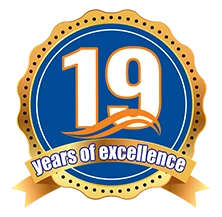BCom Course Details: Full Form, Admission, Eligibility, Subjects, Top Colleges, Fees, Exams, Scope
Bachelor of Commerce (B Com) is a three-year undergraduate degree program in India, designed to focuses on business management, accounting, taxation, finance, banking, law and management sector. For students hoping to pursue jobs in business, finance, or administration, it is among the most sought-after degrees. Students graduate with a solid basis for future professional studies like CA, CS, CMA, MBA, or MCom, thanks to the course's analytical, managerial, and communication abilities.
Usually lasting three academic years, the BCom study is broken up into six semesters. Core studies, electives, and practical sessions are all included in each semester. In order to increase job preparation and expose students to the industry, some colleges also provide internships or project work during the last semester.
Students must have finished Class 12 or its equivalent from an approved board in order to be eligible for a BCom admission. Although students from the Commerce stream are most equipped for the course, many universities also admit students with backgrounds in the arts or sciences, depending on their admissions rules. Although this varies by institution, most schools require a minimum of 45–50% in Class 12.
BCom Full Form
BCom stands for Bachelor of Commerce. It is a three-year degree in the field of commerce, finance and business administration. Nearly all Indian universities offer the BCom, a basic degree that supports a variety of career pathways.
Although "BCom" is the basic title, it can take on several forms depending on the institution or area of expertise. These consist of BCom LLB (Integrated Law and Commerce), BCom (General), and BCom (Hons). The diversity shows how the training can be tailored to the student's professional objectives.
Types of Top 3 Best BCom Courses in India
Let’s break down the most popular types of BCom programs available in India:
1. BCom General
The most popular BCom form is this one. It covers a wide range of subjects, including economics, taxation, auditing, business law, and accounting. For students who wish to broaden their knowledge of trade and maintain flexibility in their job choices, it's perfect.
2. BCom Honours
Students can concentrate on a particular area, such as accounting, finance, or economics, with BCom Honours, a more focused and intensive version of the main course. Students who intend to pursue professional courses or postgraduate studies select this course because of its more thorough and research-focused curriculum.
3. BCom LLB
This integrated course blends legal studies with the foundational curriculum of commerce course. For students who wish to pursue a career in corporate law or legal consulting, this five-year curriculum is ideal. It creates job opportunities in judicial services, compliance divisions, and law firms. Your interests, professional aspirations, and academic prowess will determine which of these sorts is best for you. Each has advantages of its own.
Read Also - Top Courses After 12th for Commerce Students: Career Options & Scope
Bachelor oF Commerce Course Overview
The three-year undergraduate Bachelor of Commerce (BCom) program focuses on business fundamentals, accounting, finance, and commerce. Students are prepared for jobs in the corporate, banking, finance, and taxes industries. The course gives students the academic and practical information they need to improve their managerial, entrepreneurial, and analytical abilities.
| BCom Course Overview | |
|---|---|
| Parameter | Details |
| Full Form | Bachelor of Commerce |
| Course Level | Undergraduate (UG) |
| Duration | 3 Years (6 Semesters); 5 Years for Integrated Programs (e.g., BCom LLB) |
| Eligibility | 10+2 from a recognized board (preferably in Commerce); 50%+ marks |
| Age Limit | No fixed age limit (varies by institution) |
| Admission Process | Merit-Based / Entrance-Based (e.g., NPAT, SET, Christ University ET) |
| Major Specializations | Accounting & Finance, Banking & Insurance, Economics, Taxation |
| Top Subjects | Financial Accounting, Economics, Taxation, Business Law, Cost Accounting |
| Fee Range | Govt: INR 5K–INR 25K/yr, Private: INR 50K–INR 2L/yr, Distance/Online: INR 6K–INR 30K/yr |
| Learning Mode | Regular, Distance, Online |
| Popular Job Roles | Accountant, Financial Analyst, Tax Consultant, Auditor, Bank Officer |
| Average Salary | INR 2.5 LPA to INR 6 LPA (Entry Level) |
| Further Study Options | CA, CS, CMA, MBA, MCom, CFA, LLB |
| Competitive Exams | UPSC, SSC CGL, IBPS PO/Clerk, RBI Grade B, CAT |
| Key Skills Developed | Financial Literacy, Analytical Skills, Communication, Business Acumen |
| Best For | Careers in Finance, Accounting, Banking, Taxation, and Government Services |
BCom Eligibility Criteria
Depending on the university and the nation, different requirements may apply for a Bachelor of Commerce (BCom) degree. Nonetheless, the following are the general requirements:
- Academic Requirement: a minimum of 45–50% (depending on the university) in 10+2 from an accredited board. Economics, mathematics, or commerce may be required courses at some schools.
- Age Limit: Most institutions don't have a set upper age limit.
- Admissions Procedure: Based on entrance tests (such as CUET, NPAT, or SET) or merit (Class 12 grades).
- Relaxation: By government regulations, reserved groups may get reduced cut-off standards.
BCom Admission Process
While each college may have a different admissions procedure, most BCom courses include the following steps:
- Application Process: The majority of universities have an online application process in which you must submit your information, attach the required files, and pay a fee.
- Entrance examinations: While some colleges use merit-based admissions, others administer entrance examinations for BCom admissions.
- Merit-based admission: Grades from the 12th grade are frequently used to determine admission. Your chances of getting accepted into a prestigious college rise with higher grades.
Detailed List of BCom Subjects
A thorough grasp of many facets of commerce is intended to be provided by the BCom courses and curriculum.
- Financial Accounting
- Marketing Management
- Financial Management
- International Business
- Business Law
- Cost Accounting
- Management Accounting
- Economics
- Business Mathematics and Statistics
- Income Tax
- Auditing
- Organisational Behaviour
- Corporate Law
- Human Resource Management
- E-Commerce
- Business Communication
BCom Course Syllabus
The syllabus of BCom may vary in different universities. However, here is the generalised syllabus of BCom
| BCom Subjects Year-Wise Breakdown | |
|---|---|
| Year | Subjects & Descriptions |
| 1st Year |
|
| 2nd Year |
|
| 3rd Year |
|
List of Top BCom Specialisations offered at Mangalayatan University Aligarh
| BCom Specialisations & Focus Areas | |
|---|---|
| Specialisation | Focus Areas |
| Accounting and Finance | Financial accounting, auditing, and financial management |
| Marketing | Marketing strategies, consumer behaviour, and market research |
| Human Resource Management | Recruitment, employee relations, organisational behaviour |
| International Business | Global trade, international marketing, and cross-border transactions |
| Banking and Insurance | Banking operations, insurance policies, and financial services |
| Economics | Economic theory, policy, and economic analysis |
| Taxation | Tax laws, tax planning, and compliance |
| E-Commerce | Online business operations, digital marketing, e-commerce strategies |
| Business Analytics | Statistical and data analysis tools for business decision-making |
| Corporate Law | Corporate regulations, company law, and legal aspects of business |
| Entrepreneurship | New venture creation, innovation, and business planning |
Exams for BCom Students
Throughout their degree, BCom students are required to take several exams.
- Internal Assessments: These may consist of midterm tests, assignments, and presentations.
- University tests: The university administers end-of-semester tests that cover every topic covered in the semester.
- External Certifications: To strengthen their credentials, some students choose to obtain extra certifications in fields like company secretary (CS) or chartered accountancy (CA).
BCom Course Scope
Higher Education Options
- Master of Commerce (MCom): This degree focuses on economics, accounting, or finance.
- Master of Business Administration (MBA): Perfect for leadership and management positions.
- Professional Courses: CA, CS, and CMA for careers in finance, taxation, and auditing.
- LLB: Suitable for commerce graduates interested in corporate law.
Employment Possibilities
- Banking & Finance: Financial planning, credit analysis, and investment banking.
- Accounting and Auditing: Tax Consultant, Cost Accountant, and Chartered Accountant.
- Corporate Sector: Marketing Manager, HR Executive, Business Analyst.
- Government Jobs: Railways, SSC, UPSC, Bank PO, and other public sector roles.
- Entrepreneurship: Self-employment, business consulting, and startups.
Worldwide Possibilities
- Global employment opportunities are made possible by international qualifications such as CPA, CFA, and ACCA
Read Also - B.A. vs. B.Sc. How to Choose the Right Path After 12th
Salary after BCom Degree Course
1. Entry-Level Salary (Freshers)
- Accountant
- Financial Analyst
- Tax Consultant
- Banking Executive
- Auditor
2. Mid-Level Salary (3–5 Years Experience)
- Senior Accountant
- Finance Manager
- Investment Banker
- Chartered Accountant (CA)
3. Senior-Level Salary (10+ Years Experience)
- Chief Financial Officer (CFO)
- Corporate Lawyer
- Entrepreneur / Business Owner – Income varies
4. Global Salary Prospects
- With international certifications like CFA, CPA, and ACCA, salaries can range from INR 20–50 LPA in global markets.
Top Colleges For B.Com. In Uttar Pradesh. India
Here is a list of some of the top colleges for BCom in Uttar Pradesh, known for their academic quality, infrastructure, faculty, and placement opportunities:
| Top 10 Private Colleges for BCom in Uttar Pradesh | |||
|---|---|---|---|
| College Name | Location | Affiliation/Type | Key Highlights |
| Mangalayatan University Aligarh | Aligarh | University (Private) | NAAC-accredited, skill-focused BCom & BCom (Hons. with Research), excellent placement support |
| Amity University | Noida | University (Private) | Modern curriculum, global exposure, strong corporate connections |
| Sharda University | Greater Noida | University (Private) | Industry-aligned BCom programs, international faculty, diverse campus |
| Galgotias University | Greater Noida | University (Private) | NAAC A+, career-oriented BCom courses, placement-driven approach |
| GLA University | Mathura | University (Private) | Well-structured commerce curriculum, value-added certification courses |
| Invertis University | Bareilly | University (Private) | Comprehensive BCom syllabus, skill development, placement support |
| Integral University | Lucknow | University (Private) | Recognized by UGC, NAAC accredited, modern commerce labs |
| SRM University | Ghaziabad | University (Private) | Career-oriented BCom programs, industry tie-ups, digital skill training |
| United University | Prayagraj (Allahabad) | University (Private) | Focus on commerce innovation, workshops, and student support |
| Bennett University | Greater Noida | University (Private) | Times Group initiative, industry-integrated BCom, experiential learning |
List of Top 10 Best Government BCom College in Uttar Pradesh, India
- Banaras Hindu University (BHU), Varanasi
- Aligarh Muslim University (AMU), Aligarh
- University of Lucknow, Lucknow
- Chhatrapati Shahu Ji Maharaj University (CSJMU), Kanpur
- Dr. Bhimrao Ambedkar University (DBRAU), Agra
- Mahatma Gandhi Kashi Vidyapith, Varanasi
- Deen Dayal Upadhyay Gorakhpur University, Gorakhpur
- Allahabad State University (Prof. Rajendra Singh University), Prayagraj
- Siddharth University, Kapilvastu
- Gautam Buddha University, Greater Noida
Course Fee Structure
Mangalayatan University, Aligarh BCom fees are INR 40,500 per year. For other colleges, please visit their respective official websites.
BCom Course Skills
Numerous talents that are useful in the workplace can be developed with the aid of a BCom education.
- Financial Acumen: Knowledge of budgeting, financial analysis, and financial statements.
- Analytical Skills: Data evaluation, financial report interpretation, and well-informed decision-making.
- Company Knowledge: A thorough comprehension of economic considerations, management concepts, and company processes.
- Accounting Proficiency: Knowledge of accounting software, procedures, and principles.
- Communication Skills: Proficient written and verbal communication is essential for presentations and corporate relations.
- Problem-Solving: Recognizing problems, weighing choices, and putting solutions into action in a business setting.
- Legal Awareness: An understanding of company governance, rules, and commercial laws.
- Marketing Insight: Knowledge of consumer behaviour, marketing tactics, and market research.
- IT and Software Skills: Expertise in information technology applications and business-related software.
- Teamwork and Leadership: Managing teams, collaborating on projects, and exercising leadership.
Challenges Faced by BCom Students
- Academic Challenges: Keeping up with the most recent developments in the field while managing the demanding homework.
- Intense Competition: Due to the large number of students choosing BCom, there is fierce competition for prestigious universities, internships, and employment opportunities.
- Balancing Theory and Practice: It can be challenging for students to strike a balance between theoretical knowledge and practical abilities.
- Exam Pressure: There might be a lot of pressure to do well on tests and get good grades.
- Keeping Up with Changes: Students must keep up with the most recent rules and trends because the banking and commerce industries are always changing.
- Limited Practical Exposure: Students may find it difficult to apply their knowledge in real-world situations due to a curriculum that doesn't offer adequate practical exposure.
- Career Uncertainty: Selecting the best career path can be challenging and stressful due to the abundance of options.
- Skill Development: It can take time to acquire new abilities, including technical expertise, leadership, and communication, but doing so is essential.
- Internship Opportunities: It can be difficult to find relevant internships to obtain real-world experience.
- Financial Restraints: For certain students, paying for their education—including tuition and study materials—can be a major hardship.
- Juggling Work and Study: Students who work part-time jobs to pay for their education may find it challenging to manage their time between work and school.
Why Choose Mangalayatan University Aligarh for BCom Admission
- UGC approved
- Compliant Curriculum: Provides a 4-year Honours with Research track, a contemporary, diversified curriculum, and flexible exit alternatives.
- Industry-Oriented Learning: Hands-on experience via financial simulations, case studies, and internships.
- Research Component in Final Year: Students who choose Honours with Research complete a guided project or dissertation, which is perfect for jobs requiring analysis or academia.
- Competitive Exam Support: Integrated government, CA, CS, and CMA exam preparation.
- Qualified Faculty & Mentorship: Gain knowledge from seasoned industry professionals, PhD holders, and chartered accountants.
Conclusion -
Mangalayatan University, Aligarh, offers UGC-approved course, industry relations and career-oriented programs and thus it is among the top options that a child who wants to master commerce can choose.









